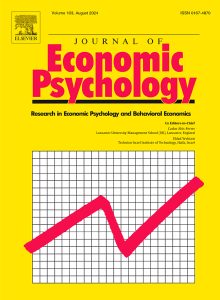Competition, confidence and gender:
Shifting the focus from the overconfident to the realistic
Tünde Lénárd, Dániel Horn, Hubert János Kiss
Journal of Economic Psychology, available online 30 July 2024
Abstract:
The gender gap in competitiveness is argued to explain gender differences in later life outcomes, including career choices and the gender wage gap. In experimental settings, a prevalent explanation attributes this gap to males being more (over)confident than females (we call this the compositional channel). While our lab-in-the-field study using data from students in 53 classrooms (N>1000) reproduces this finding, it also uncovers a second, potentially more impactful channel of confidence contributing to the gender gap in competitiveness (the preference channel). To disentangle the two channels, we propose a more precise measure of confidence based on whether the subjects’ believed performance rank exceeds, coincides with or falls short of their actual performance in a real-effort task. We label categories of this Guessed – Actual Performance (GAP) difference as overconfident, realistic or underconfident, respectively. Surprisingly, there is no gender difference in competitiveness within the over- and underconfident subgroups, while a significant gender gap exists among the realistic. So, even if both genders had the same level of confidence, a persistent gender gap in preference (or taste) for competition would remain in the realistic group. This finding is robust across all specifications, challenging previous theories about the overconfidence of men being the main driver of the relationship between confidence and the gender gap in competition.
Keywords: Aadolescents; Competitiveness; Confidence; Gender; Experiment



